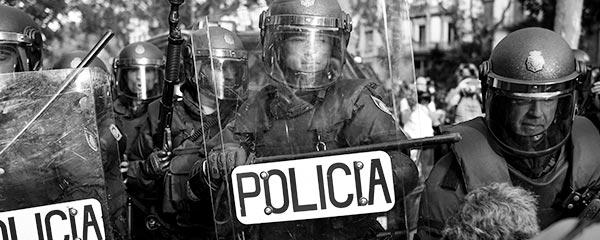Story Highlights
- Percentage who feel safe walking alone fell to its lowest in 2014
- Confidence in local police low since popular uprising in 2011
- Steady confidence in military slipped in 2013
WASHINGTON, D.C. -- As the warring parties in Yemen's conflict begin United Nations-brokered peace talks in Geneva, ║┌┴¤═° surveys suggest that Houthi rebels took advantage of a security vacuum that opened before the outbreak of the current crisis. The percentage of Yemenis saying they feel safe walking alone at night in the city or area where they live fell to 57% in June 2014 -- the lowest level ║┌┴¤═° has recorded in the past eight years.

Shortly after this decline in Yemenis' feelings of safety, the Houthis seized control of much of the capital of Sanaa in September 2014. That offensive culminated in the formal overthrow in early 2015 of the government led by President Abed Rabbo Mansour Hadi. Hadi became president in February 2012 following Yemen's popular Arab Spring uprising that ended the 33-year rule of former President Ali Abdullah Saleh.
The drop in Yemenis' feelings of safety followed a decline in their confidence in their local police. Before the popular uprising that began in January 2011, roughly half of Yemenis consistently said they had confidence in their local police force. That rate declined sharply as the uprising wore on with less than one-third expressing confidence in the police during any of the three World Poll surveys following Saleh's ouster.

Unlike the police, the military in Yemen managed to maintain the public's confidence throughout the 2011 uprising. However, confidence in the military dropped sharply in 2013 to 53%. Confidence rebounded somewhat in 2014, but it remains below the historical average observed from 2007 to 2012. While newer data are not yet available, Yemenis' confidence in the military has likely eroded further following the Saudi-led intervention aimed at restoring Hadi to the presidency.

Implications
Yemenis' declining perceptions of safety and weakening confidence in security forces alone could not have predicted the Houthis' rapid overthrow of the Hadi government earlier this year. However, these findings do suggest the risk for such a conflict had been growing for some time. The Saudi-led intervention and protracted fighting following the Houthi expansion likely has been detrimental to Yemenis' perceptions of security, and whatever the results of the Geneva talks may be, it will likely take some time to restore public confidence in the country's battered security forces. Restoring Yemenis' confidence in personal safety and their country's security forces presents a major obstacle to both resolving the current internal conflict and to addressing the challenge of al Qaeda in the Arabian Peninsula -- the group that could prove to be the biggest beneficiary of the civil war in Yemen.
These data are available in .
Survey Methods
Results are based on face-to-face interviews with 1,000 adults, aged 15 and older, conducted May 30-June 12, 2014, in Yemen. Prior survey waves were also conducted through face to face interviews with 1,000 adults, aged 15 and older in January 2007, March 2009, September 2009, February 2010, September 2010, March 2011, July 2011, March 2012, September 2012 and June 2013. For 2014 results based on the total sample of national adults, the margin of sampling error is ±3.7 percentage points at the 95% confidence level. Margins of sampling error in prior waves ranged from ±3.6 to ±3.9. All reported margins of sampling error include computed design effects for weighting.
For more complete methodology and specific survey dates, please review .
Learn more about how the works.

